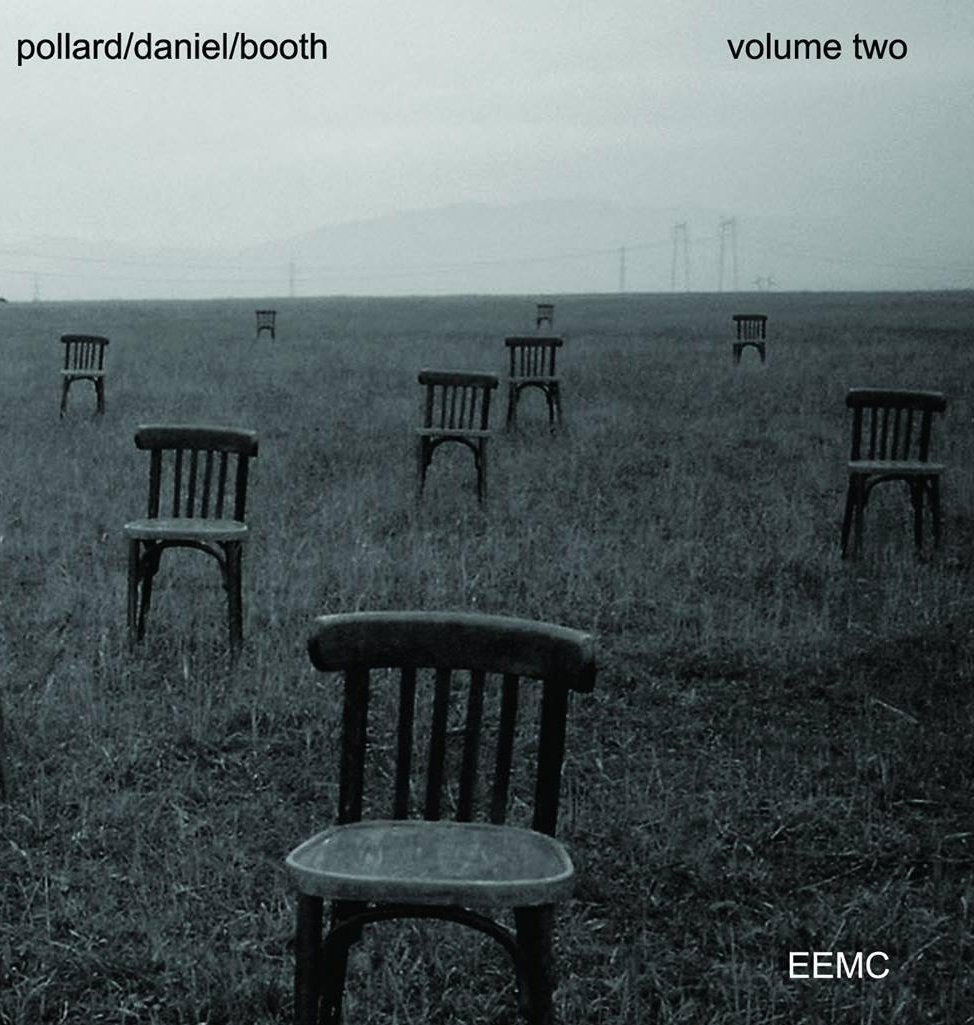POLLARD DANIEL BOOTH: Vol. 3 (2010)
- Sylvain Lupari

- Dec 15, 2010
- 3 min read
Updated: Jan 2, 2022
“The England trio excels in the art of making us relive the retro Berlin School”

1 Eindhoven I 23:06
2 Eindhoven II 29:01
3 Eindhoven III 25:16
(DDL 77:22) (V.F.)
(Classic Berlin School)
Exploring the musical universe of Pollard Daniel Booth is inevitably doing a musical journey that takes us to the roots of the old Berlin School. Even with today's technology and equipment, the England trio swears by the analog and is continually drawn to the long enchantments of synths of which the sweet scents of mellotron haze travel over the random rhythms built par great sequencing patterns. Recorded 2 weeks before the famous Hampshire Jam 8, Pollard Daniel Booth Vol. 2, this show in the Netherlands School grounds presents 3 long improvised acts with dark ambiences whose nervous sequenced rhythms cross the mists and flutes of Mellotron. The enveloping synths let sharp solos flow, which go hand in hand with those of Michael Daniel's guitar, while being inexhaustible resources to ignite this universe of sound effects of a forgotten analog world.
POLLARD DANIEL BOOTH Vol. 3 begins with a Mellotron's gothic and mystical breaths of which the ethereal emanations tread on a drizzle of sound effects, courtesy of Phil Boot who adds a unique dimension to PDB's Berlin School style. Spectral, strident ululations lasciviously surround a Mellotron whose dense layers and fluty tones float like morphic clouds adorned with stray piano notes, adding even more mysticism to the introduction of Eindhoven I. A jerky sequencer line forges a nervous pace around the 6th minute. It gallops over a rhythmic structure with subtle interjections. The rhythm is constant and relentless in a universe filled of cosmic sound effects and heavy reverberations, even borrowing a rhythmic gait that sounds like Jean-Michel Jarre in his The Concerts in China. Slowed down by the heavy resonances that escape from everywhere, the rhythm crosses a minimalist road that a guitar with aggressive solos and a synth with twisted solos, set ablaze around the 12th minute. Remaining on this hypnotic pace Eindhoven I becomes heavy and metallic. It becomes a violent Berlin School which moderates slowly its approach to take the road of a cosmic rock drowned of sweet celestial and cosmic perfumes.
Eindhoven II presents a wonderful opening where the piano notes dance in the breezes of a soft celestial flute. A warm introduction that a sudden sequence awakens the senses around the 7th minute. A heavy and aggressive rhythm follows. It undulates under the weight of the synths' symphonic breaths. Frivolous and light, the Rhodes notes follow a totally unexpected sequencer line, adding more weight to a heavy cadenced structure that rides over a good bass line. Eindhoven II gets heavy, even violent, with this powerful rhythmic movement that is pushed and supported by heavy synth layers that spit out ochre streaks in a heavy symphonic and apocalyptic sound immersion. This rhythm rides the cosmic plains before running aground on the shores of a galactic universe with an enchanted flute, much like in its introduction. A slow introduction drenched in heavy sound effects of a metallic blue-gray galactic world opens Eindhoven III. A video game universe that gradually gives way to morphic breaths where monastic choirs, mellotron flutes and undulating synth layers zigzag faintly in a starry cosmos of cosmic sound effects. A soft flute escapes, announcing the coming of a sequence with heavy resonant balls that hammer out a powerful hypnotic rhythm. A rhythm enclosed by sinuous synth waves. The sequenced movement splits, misplacing balls that form a rhythmic texture freed from its minimalist approach and that pound our ears crossed by as many guitar solos as synthesizers. These twisted and incisive solos duel under layers of cosmic mist that intertwine in a heaviness worthy of the good Berlin School of the analog years.
It's a fact that Pollard Daniel Booth does not invent anything. To claim the contrary would be to show a narrow-minded fanaticism. On the other hand, the England trio excels in the art of making us relive the retro Berlin School while adding a touch of contemporaneity which cannot be denied. A contemporary touch nourished by furious spasmodic sequences that sculpt audacious rhythmic textures whose multiple transformations transcend the hypnotic and minimalism rhythms of the vintage years. It remains that in the end, it is solid Berlin School retro.
Sylvain Lupari (December 15th, 2010) *****
Available at Pollard Daniel Booth Bandcamp




Comentarios